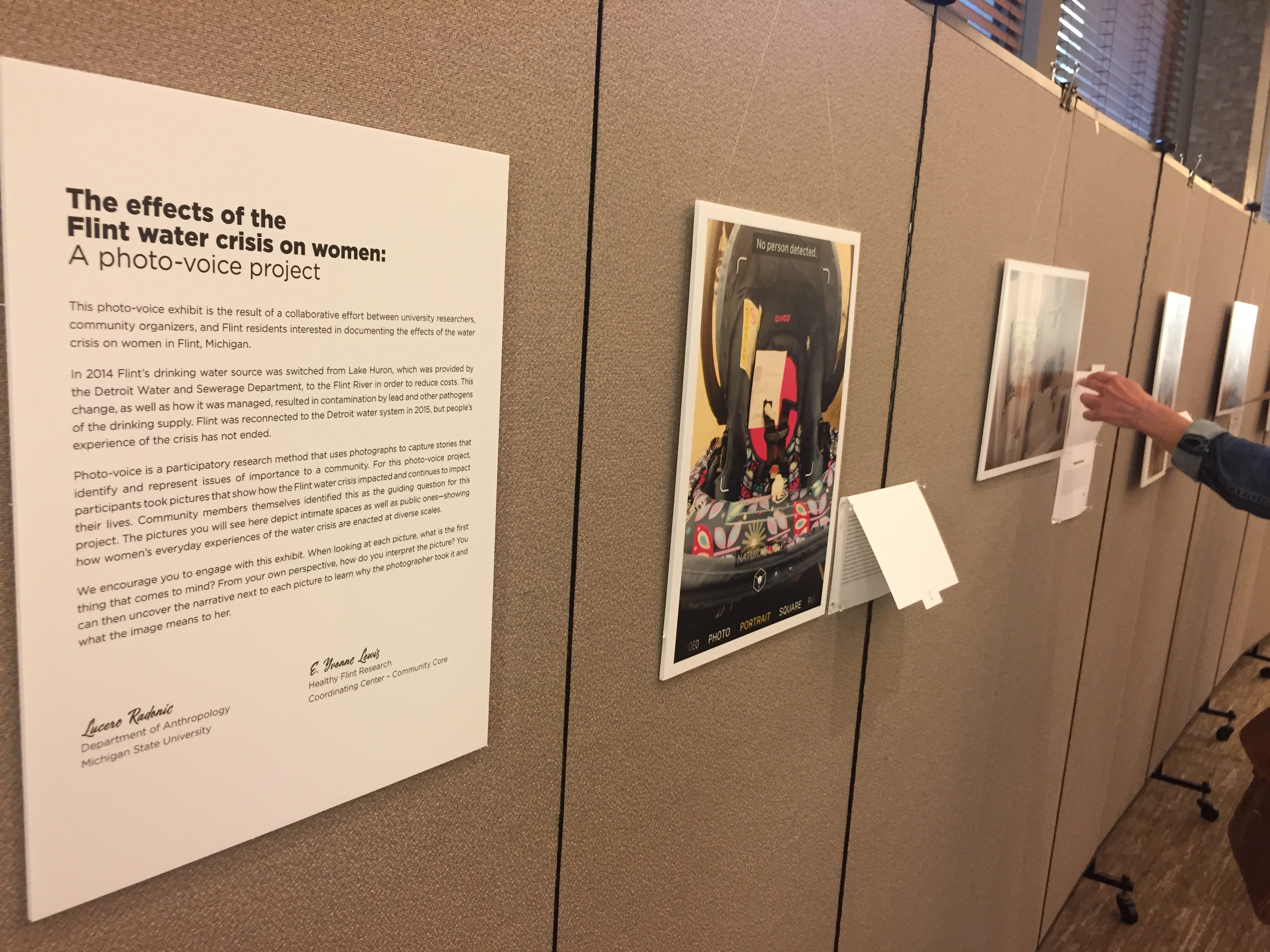Community-based social science research reveals how the women of Flint are still coping with the water crisis
March 25, 2021 - Liz Schondelmayer
While the Flint water crisis was breaking news almost seven years ago, its impact on the health and trust of Flint residents has outlived the headlines. While ex-Governor Rick Snyder and many of his officials are currently facing criminal charges, many community leaders and academic researchers are teaming up to learn from the past and create a better future.
A recent collaborative photovoice study between Dr. Lucero Radonic (pictured left), an assistant professor in the Michigan State University Department of Anthropology, anthropology graduate student Cara Jacobs, and E. Yvonne Lewis, co-director of the Healthy Flint Research Coordinating Center Community Core (HFRCC), explores how women specifically are impacted by the Flint water crisis - and how academic and community partners can work together to address such crises in the future.
Creating community connections through collaboration
"The idea developed while I was teaching a research methods class for MSU's Gender, Justice, and Environmental Change program," explained Dr. Radonic. "I thought it would be a perfect opportunity to show my students the importance of community-based research. This is especially important when working with communities where environmental problems are drawing much media and research attention."
Dr. Radonic was then introduced to Ms. Lewis through her previous connections in the MSU Center for Gender in Global Content (GenCen).
"We came together because of our shared passion for teaching young researchers the importance of community-based research," explained Dr. Radonic. "It's extremely critical to both of us that community voices are involved in the design and implementation of research."
Together, Dr. Radonic and Ms. Lewis recruited participants and, with the help of students from Dr. Radonic's research methods class, began gathering data. The data was collected using a qualitative research method called "photovoice," which asks participants to submit photographs and engage in interviews to share their opinions and experiences about an issue.
Coping with a crisis

For example, many participants revealed that the lack of accessibility to safe water consumed their daily lives as they navigated acquiring, boiling, and using bottled water for everything from drinking to cooking to bathing - leaving little time for anything else.
Explained one participant, "The regulations on bottled water aren’t that great. Then you have the issue of the water and the plastic, so there’s cautions about the water getting too cold and freezing, the water getting too hot, where you store it outside."
The study also revealed a definitive lack of trust of Flint's drinking water - as well as city and government officials. Explained one participant in the study, "I don’t trust [the water], because I don’t trust the testing mechanisms that the city and the state have done. I don’t trust that they are doing the proper testing because they don’t want to see any negative results."
Most importantly, however, this study revealed an incredible amount of resilience among the women who participated. "Their creativity and resourcefulness while navigating the burdens of the water crisis shows just how strong these women are," noted Dr. Radonic.
When it came to coding the results, Dr. Radonic and Ms. Lewis took a novel approach by inviting participants to help categorize their own responses. "We wanted to make sure that participants were a part of every step of our research process, and that they felt our study encaptured what they were going through," said Dr. Radonic.
Dr. Radonic also used this research opportunity to showcase the importance of community-based research, even if conducted over a short period of time.
"Even when longer-term options are not feasible, there is still value in doing short-term community-based research," explained Dr. Radonic. "However, it is important to remember that it is a sprint, not a marathon - meaning there is a significantly higher time and workload commitment."
Read the full research article here.

